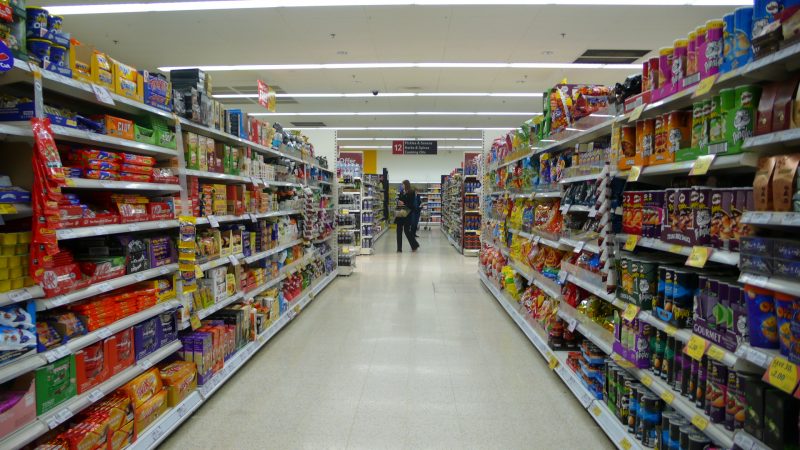There’s also, of course, undeniable evidence about the major contributions of the food system to the climate emergency and nature crisis

Baroness Natalie Bennett is a Contributing Editor at Left Foot Forward, and the former leader of the Green Party of England & Wales.
After a week highlighting the disastrous impacts of Big Food – a handful of giant multinational companies that dominate our food system, at every level from seeds and fertilisers and pesticides, to manufacturing, fast food chains and supermarkets – I opened the Politico morning roundup last week to a reminder that battle is clearly joined.
The advert was from Coca-Cola: “Coca-Cola Great Britain has been on a journey to reduce sugar in our drinks, while also increasing choice. Since 2010 we have reformulated 43 products and launched over 100 low- and no-sugar drinks. Today, two-thirds of the drinks we sell are low- or no-calorie products.”
It is almost like the purveyor of a product that’s really good for cleaning coins knew that the Observer last weekend would be previewing a report on Sugar Pollution, calling for a cap on domestic production and tariffs on imports. That’s given the fact that the UK grows and imports 1.91 million tonnes, when the maximum healthy consumption would be 0.72 million tonnes.
As Coca-Cola is striking back, so is the factory-farming sector. The Guardian on Saturday reported how the “Dublin Declaration of Scientists on the Societal Role of Livestock”, backed by the EU agriculture commissioner, is intimately linked to the industry, while making unfounded claims about its human health and environmental impacts.
The entrenched interests are clearly feeling the pressure, for independent scientists and medics are assembling the evidence, not just of how bad our food system is for health – that’s long been understood, in a world in which excess weight is now a bigger problem than undernutrition, in poorer nations as well as the wealthy – but how the nature of our food, as well as its levels of fat, sugar and salt, are at the heart of the problem.
As a group of researchers said in the British Medical Journal this week, public health policies to reduce consumption of ultra-processed food “cannot wait”. But of course the familiar tactics are being deployed by the peddlers of ultra-processed food: an event held specially to defend them had close ties to the industry.
There’s also, of course, undeniable evidence about the major contributions of the food system to the climate emergency and nature crisis, responsible for about 15% of fossil fuel use around the world and a major contributor to the pollution of our rivers and seas and antibiotic-resistant bacteria that threaten our health.
In the House of Lords last month, Conservative peer Baroness Jenkin of Kennington secured a debate on the impact of ultra-processed food on the health of children. The following day, I had an oral question seeking acknowledgement from the government that this category of food both exists and is a major health issue. (As I first did in 2020.)
Lord Markham, health minister, complained that he kept being forced to debate the issue; well, yes, the government is so clearly wrong in its stance, the challenges will continue. And what we heard from Labour on the issue was far from strong, echoing the government’s unfounded claim of uncertainty when other nations are increasingly adopting the NOVA classification system and working to reduce consumption of ultra-processed food. (The French, for example, have made this national policy, even though they only get 31% of calories from UPF, while for the UK the figure is an awful 54%.)
It is not just consumers who are the victims of this broken system. Farmers are pushed to produce commodities, not healthy food, driven to wring every bit of volume production from their land and animals. Their returns are squeezed to the bone, when they get a return at all.
At the National Fruit Show last week, I was hearing from farmers and growers about the urgent need for stronger powers for the Groceries Code Adjudicator to help them stand up to the handful of supermarket giants that dominate our food distribution. It’s something the public is increasingly understanding, including now more than 75,000 people who’ve signed the #GetFairAboutFarming petition.
But to come back to that soft drink, and the low- and no-calorie “virtues” its peddler is so keen to tout. The brilliant First Steps Nutrition Trust reports that 65% of one and a half to three year-olds in the UK drink on average one adult-sized can of soft drink a day. Whether it is filled with sugar or artificial sweeteners (which have significant health problems, and no nutritional benefit), that’s an awful statistic.
The parallels with the behaviour of Big Tobacco and Big Oil in the telling of obscuratory tall tales about their products is telling. They succeeded for decades – with the help of liberal applications of lobbying cash – in maintaining their deadly systems, even in the face of the evidence. Our public health cannot afford the same period of delay with Big Food.
Left Foot Forward doesn't have the backing of big business or billionaires. We rely on the kind and generous support of ordinary people like you.
You can support hard-hitting journalism that holds the right to account, provides a forum for debate among progressives, and covers the stories the rest of the media ignore. Donate today.



